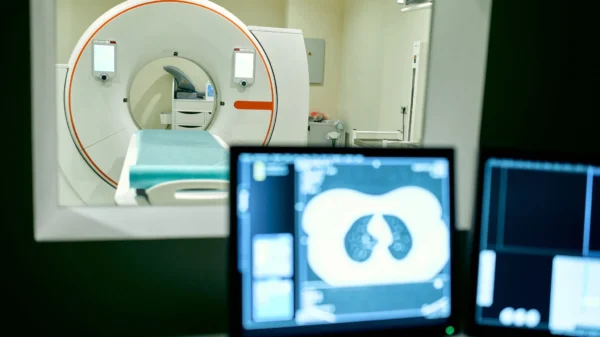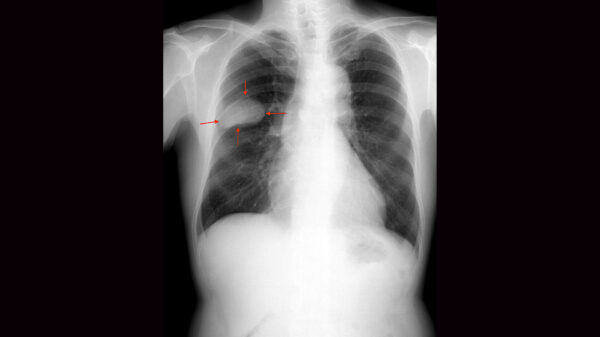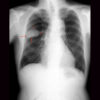Can taking an inexpensive over-the-counter pain medication regularly make you less likely to receive a lung cancer diagnosis?
Certain researchers believe that it can while others aren’t so enthusiastic.
The anti-inflammatory drug Aspirin, originally developed by Bayer AG (OTCMKTS: BAYRY) and synthesized from willow bark, is more well-known for its ability to help fend off colorectal and other cancers.
Nonetheless, we will explore some of the research supporting the notion that it can help prevent the world’s deadliest cancer in this article. Also, we’ll see what the naysayers think.
First, we will look at the most recent studies on the matter. Then, older research will be examined and cross-referenced before a conclusion.
Read more: Breath Diagnostics takes aim at lung cancer with One Breath
Read more: Breath Diagnostics pioneers novel lung cancer breath test
Danish investigators say your lungs are better off without it
Research published in the Journal of the National Cancer Institute last fall found that the pill increases your chances of contracting the respiratory condition.
The authors say that low-dose Aspirin will make you more likely to be diagnosed with bladder cancer too.
“Substantially elevated hazard ratios were found for lung and bladder cancer,” Denmark’s medical professionals said. They analyzed data from over 1.9 million patients to make their conclusions.
However, these researchers still recognize its benefits for colorectal cancer.
“Long-term use of aspirin has been shown to reduce colorectal cancer risk, but the association remains inconclusive for individual non-colorectal cancers,” they explained.
Hong Kong researchers favour the drug
In early 2022, a team of investigators from Asia’s financial centre found that taking the tablets could significantly lower the risk of lung cancer and death attributable to the condition among those already suffering from chronic obstructive pulmonary disease (COPD).
“Aspirin use was associated with a 25 per cent lower risk of lung carcinoma,” they determined. Their findings were derived from examining a database containing statistics and information on over 42,000 COPD patients.
The study authors published their research in the 20-year-old medical journal PLOS Medicine.
Some doctors have advised their patients to pop the pill about 24 times annually. In 2014, a team of researchers led by a professor from Queen Mary University of London said that those between the ages of 50 and 65 should take it every day. They claimed that thousands of deaths could be avoided from multiple cancers by doing so.
My doctor, Georgi Dinkov, said that simply taking aspirin twice a month has a very strong preventative effect against almost all cancers.
Taking it twice a week offers protection against diabetes, cardiovascular disease, Alzheimer’s, and Parkinson’s.
— Veronica (@celestialbe1ng) September 24, 2024
Read more: Novocure scoops FDA approval for electric field lung cancer treatment device
Read more: American football player passes away at 23 from rare lung cancer
Taiwan scholars agree with those in Hong Kong
An investigation by Taiwanese researchers, just under three years ago, examined the impact Aspirin had on the overall survival rate of patients with inoperable non-small cell lung cancer (NSCLC). The authors published their findings in the UK journal BMC Cancer.
“Aspirin use is associated with a longer overall survival in patients with inoperable NSCLC,” they concluded, “suggesting that aspirin has a potential anti-cancer effect.”
This conclusion was drawn by examining data on more than 38,000 patients diagnosed with the condition in Taiwan’s National Health Insurance Research Database.
But, despite their findings, they are well aware of the varying opinions on the subject.
“Research on the association between aspirin use and survival in patients with lung cancer has revealed inconsistent results.”
Generally beneficial for cancer prevention, unless you’re old
There appears to be a generally positive sentiment about Aspirin’s ability to prevent a variety of different cancers.
“Long-term [≥5 or ≥10 years] use was associated with at least 10 per cent reductions in hazard ratios for several cancer sites,” the Danish investigators previously mentioned said.
“Namely colon, rectum, esophagus, stomach, liver, pancreas, small intestine, head and neck, brain tumours, meningioma, melanoma, thyroid, non-Hodgkin lymphoma and leukaemia.”
Daily aspirin cut the risk of liver cancer in patients with fatty liver disease in half. pic.twitter.com/YpJ05YXrcG
— P.D. Mangan Health & Freedom Maximalist 🇺🇸 (@Mangan150) October 30, 2023
Read more: Alpha Tau treats first lung cancer patient with radiation therapy in Jerusalem
Read more: bioAffinity Technologies makes phlegm lung cancer test widely available to Veterans
Another study from the British Journal of Cancer (BJC) last November found that taking Aspirin could lead to a 30 per cent reduction in deaths among a variety of cancer patients.
“Together with the evidence of favourable effects of aspirin upon a wide range of biological mechanisms relevant to cancer mortality,” the BJC researchers explained, “these clinical outcomes suggest that aspirin is likely to be of benefit to patients within a very wide range of different cancers.”
Although multiple people think it is beneficial for an assortment of conditions in the disease group, this might not hold true for older people. A large-scale clinical trial funded by the National Institute on Aging in 2018 determined that those over 70 who take the drug are more likely to be diagnosed with advanced cancer and die than those who do not.
But, a year prior to that study, a Harvard Medical School instructor said that men and women who took Aspirin regularly were 11 per cent and 7 per cent less likely to die from cancer, respectively.
Conclusion: too many varying opinions on the lung variety
When it comes to the over-the-counter medication’s efficacy for the prevention of lung cancer specifically there are just too many differing opinions.
“High-frequency aspirin use significantly increased risk of lung cancer by 28 per cent compared to no use,” a group of researchers concluded in a 2021 entry from the Translational Lung Cancer Research journal.
Yet that same Harvard instructor discussed above says that Aspirin users are less likely to die from lung cancer.
One credible source says it’s beneficial and the next has objections.
rowan@mugglehead.com













